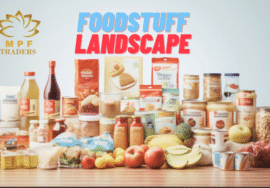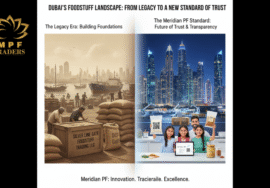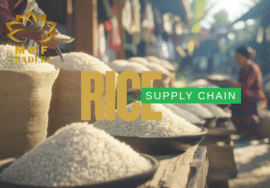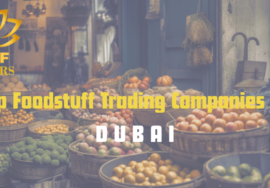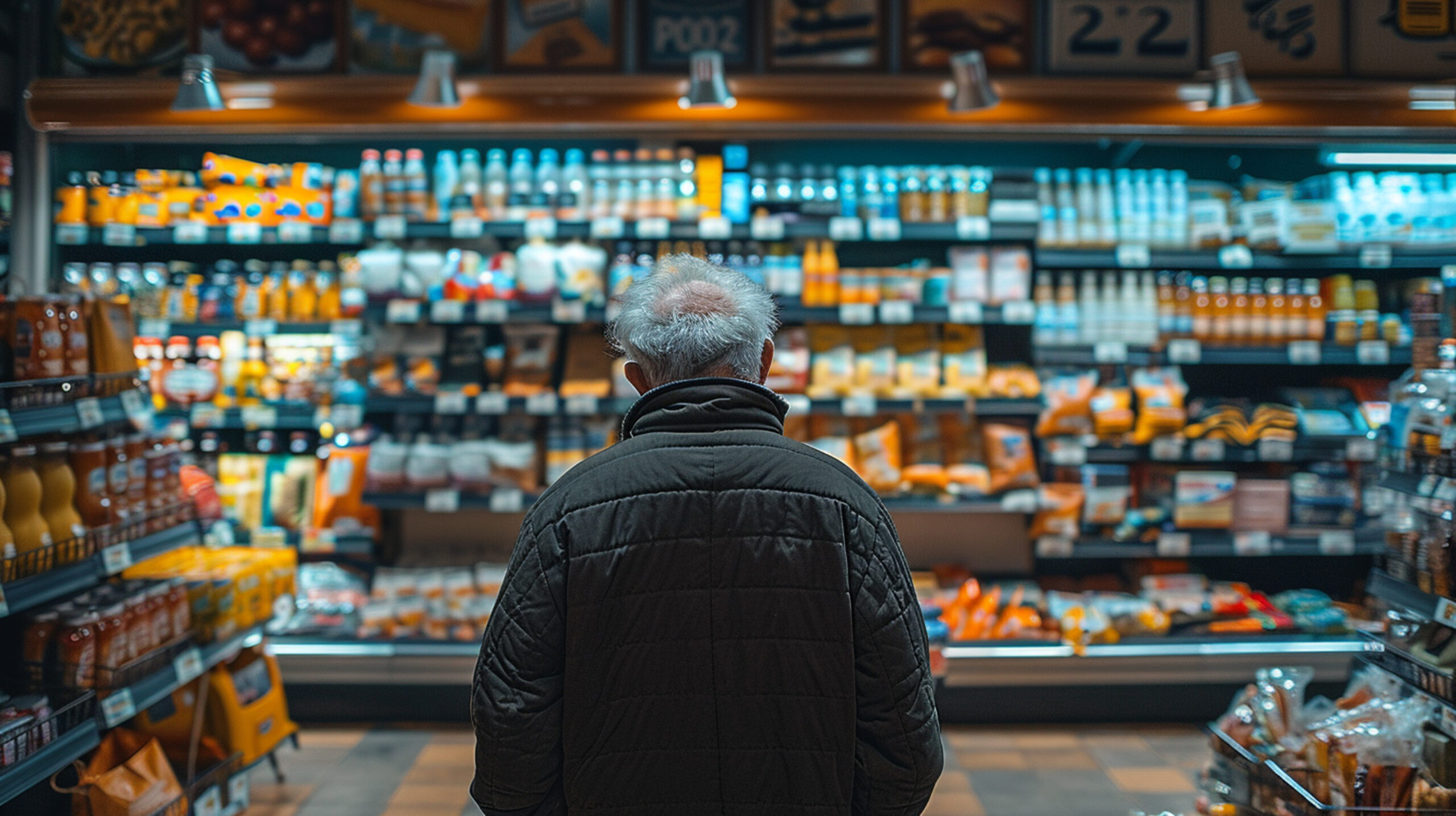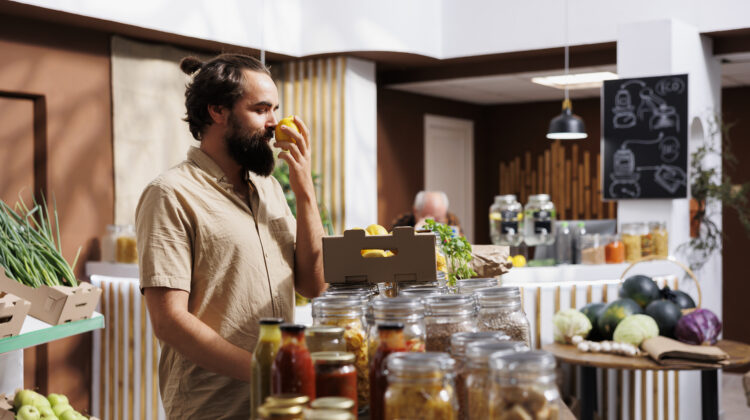
Navigating Dubai’s Foodstuff Trading Landscape | A Guide to Key Players and Products
Introduction
Dubai has long established itself as a global hub for trade, connecting the East and the West through its advanced logistics, state-of-the-art infrastructure, and strategic geographic location. Among its most vital industries is the foodstuff trading sector, which ensures a steady flow of essential food products into the UAE and beyond. From staples like rice and wheat to premium oils, beverages, and frozen items, Dubai’s foodstuff market is as diverse as its multicultural population. With numerous foodstuff trading companies in Dubai competing in a highly dynamic environment, businesses and retailers have access to some of the world’s most trusted suppliers and wholesalers.
What is Foodstuff Trading?
Foodstuff trading refers to the large-scale import, export, and distribution of food products across markets. In Dubai, this sector plays a critical role in ensuring food security and supporting the hospitality, retail, and wholesale industries.
There are two main types of companies driving this sector:
General Traders: Businesses that deal in a wide variety of products, covering multiple food categories such as grains, oils, packaged foods, and beverages.
FMCG Companies: These firms specialize in fast-moving consumer goods, supplying products that are in high demand for households, restaurants, and retailers.
The combination of foodstuff trading UAE companies and Dubai’s strong re-export market makes the city one of the most important food distribution hubs globally.
The Major Players in Dubai’s Foodstuff Trading Market
Dubai is home to hundreds of trading firms ranging from small-scale suppliers to multinational giants. The market includes:
Massive FMCG companies supplying everything from dairy and snacks to beverages and frozen foods.
Specialized wholesalers focusing on particular product categories like oils, grains, or spices.
General trading companies that handle a mix of essential commodities and premium products.
Examples of well-established trading houses include:
Greenhouse Foodstuff Trading LLC – Known for its extensive distribution network and strong relationships with retailers.
Silver Line Gate Foodstuff Trading LLC – Specializing in dairy and other essential food products across the region.
For businesses looking to partner with reliable distributors, the list of foodstuff trading companies in Dubai provides a wide range of options tailored to every niche.
Key Product Categories in Foodstuff Trading
The diversity of Dubai’s trading landscape can be best understood by examining the major product categories.
1. Staples
Staples such as rice, pulses, wheat, and flour form the foundation of the UAE’s food market. With consumers from South Asia, the Middle East, and Africa, demand for different varieties of rice is particularly strong. Several rice suppliers in UAE cater to both bulk buyers and retailers, ensuring quality and consistency.
2. Oils & Fats
Oils and fats are another vital segment in Dubai’s trading sector. Products in this category include:
Cooking oil wholesale suppliers in UAE offering bulk sunflower, corn, and canola oil.
Desi ghee in Dubai, which remains a preferred cooking ingredient for South Asian consumers.
Olive oil for health-conscious buyers and Mediterranean cuisine.
Sunflower oil as one of the most popular household staples.
The wide availability of oils and fats makes this category highly competitive among Dubai wholesalers.
3. Spices & Condiments
Dubai’s multicultural community demands a vast range of spices and condiments, from Indian masalas to Middle Eastern herbs. Many general traders in Dubai specialize in importing and distributing these high-demand products.
4. Frozen & Packaged Foods
The FMCG sector thrives on frozen foods, snacks, ready-to-eat meals, and packaged goods. These products are particularly important for the hospitality and retail industries, which depend on reliable FMCG suppliers to meet daily demand.
5. Beverages
From bottled water and fruit juices to energy drinks and soft drinks, beverages represent a growing segment of foodstuff trading. Many FMCG companies ensure timely delivery of both local and international brands to supermarkets, restaurants, and cafes.
How to Choose the Right Supplier
With such a competitive landscape, businesses must carefully evaluate suppliers before entering into contracts. Here are some key factors to consider:
Verify Licenses and Registrations
Ensure that the company is officially licensed by Dubai Municipality and registered under UAE trade regulations. Reliable foodstuff trading companies in Dubai maintain all necessary certifications.Check Quality Standards
Look for suppliers with recognized certifications such as ISO, HACCP, or Halal approvals. These guarantee compliance with international food safety standards.Evaluate Logistics and Distribution Capabilities
A good supplier should have robust storage, transport, and distribution systems to ensure timely deliveries across the UAE and to export markets.Compare Pricing and Contracts
While competitive pricing is important, reliability and product quality should never be compromised. Partnering with established general traders or FMCG companies ensures long-term benefits.
Conclusion
Dubai’s foodstuff trading industry is a cornerstone of the city’s economy, ensuring that diverse communities have access to essential products year-round. With hundreds of foodstuff trading companies in Dubai, from specialized wholesalers to large-scale FMCG companies, the market offers immense opportunities for businesses to grow. Whether it’s sourcing staples from rice suppliers in UAE, partnering with cooking oil wholesale suppliers in UAE, or dealing with general traders, the options are extensive.
For buyers and retailers, the key lies in choosing the right partners who can guarantee quality, efficiency, and reliability. As the industry continues to expand, Dubai will remain a leading hub for foodstuff trading UAE, connecting global suppliers with regional markets.

